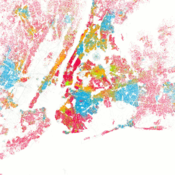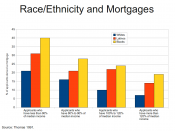1.The main purpose of this article is to allow the reader to draw his or her own conclusions on and explore the theories that have been presented as explanations for the reasons and ways that race, social class, and ethnicity are believed (by a number of researchers) to influence the educational outcomes as measured by standardized, "high stakes" performance tests.
2.The key question that the author is addressing is an accumulation of many. In part, because it is not exactly a one-part question. After thoroughly reading the article, I find that it would be "What are the stakes in 'high stakes' testing, "who is impacted," (2) and, which, if any of these theories are most valid in explaining how race especially, effects educational outcomes. Although this is the key question I believe it is derived from a number of questions that are specifically addressed in the article, which include: "who are some of the stakeholders in testing performance?" "What are some problems with race definitions in social research?" "What is the evidence that racial and ethnic identity make a difference in test performance? How big is the 'racial' difference in test performance? Has the difference increased or decreased over time?" And, "How can explanations of racial differences be categorized?" (2)
3. The most important information in this article is Figure 6:Research Orientations Towards race and Social Outcomes, being that it is the basis of the majority of the researched information in this article.
4.The main conclusion in this article is that while earlier research and explanations for how race, social class, and ethnicity are possibly connected to educational outcomes may have been acceptable then, and still are to some people, they are not as reliable nor as verifiable as they should be in order to...


